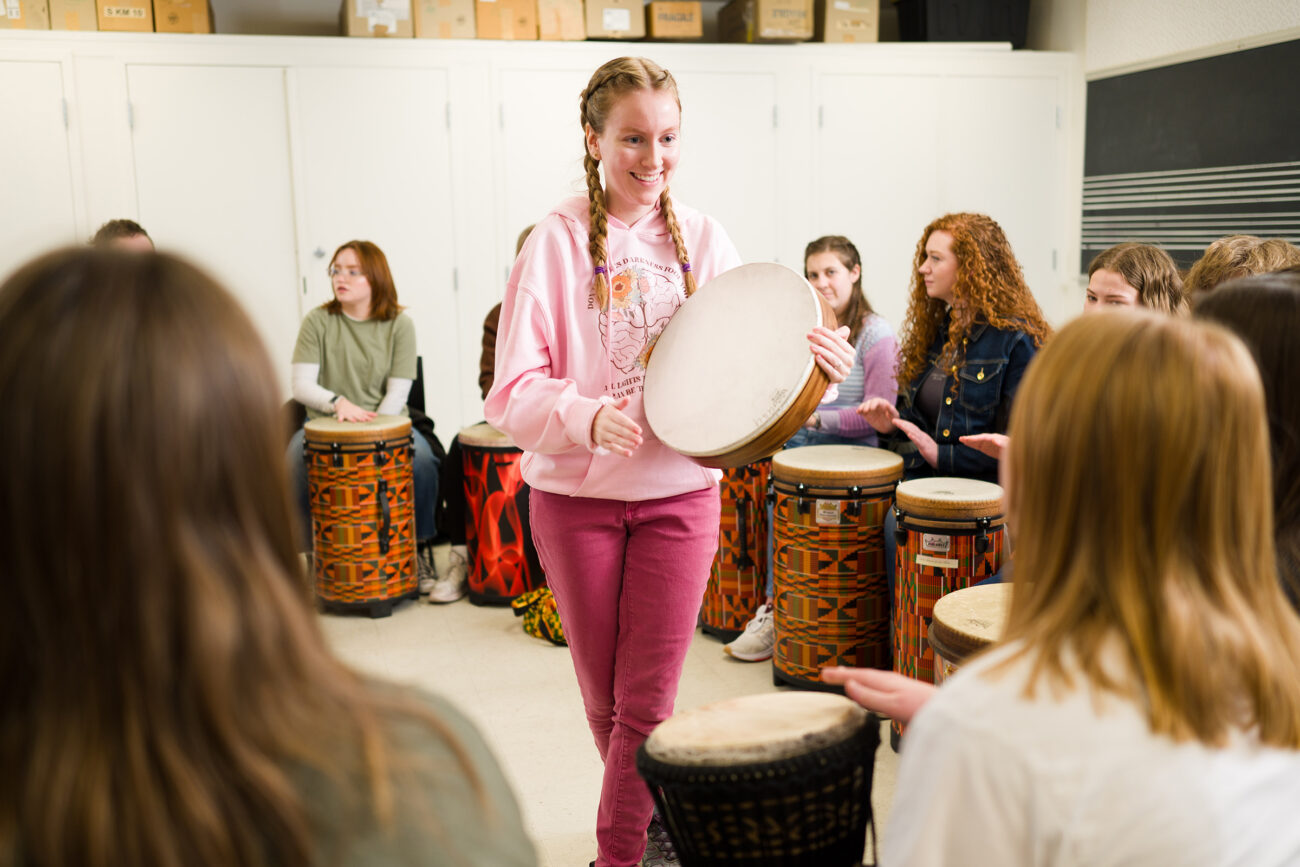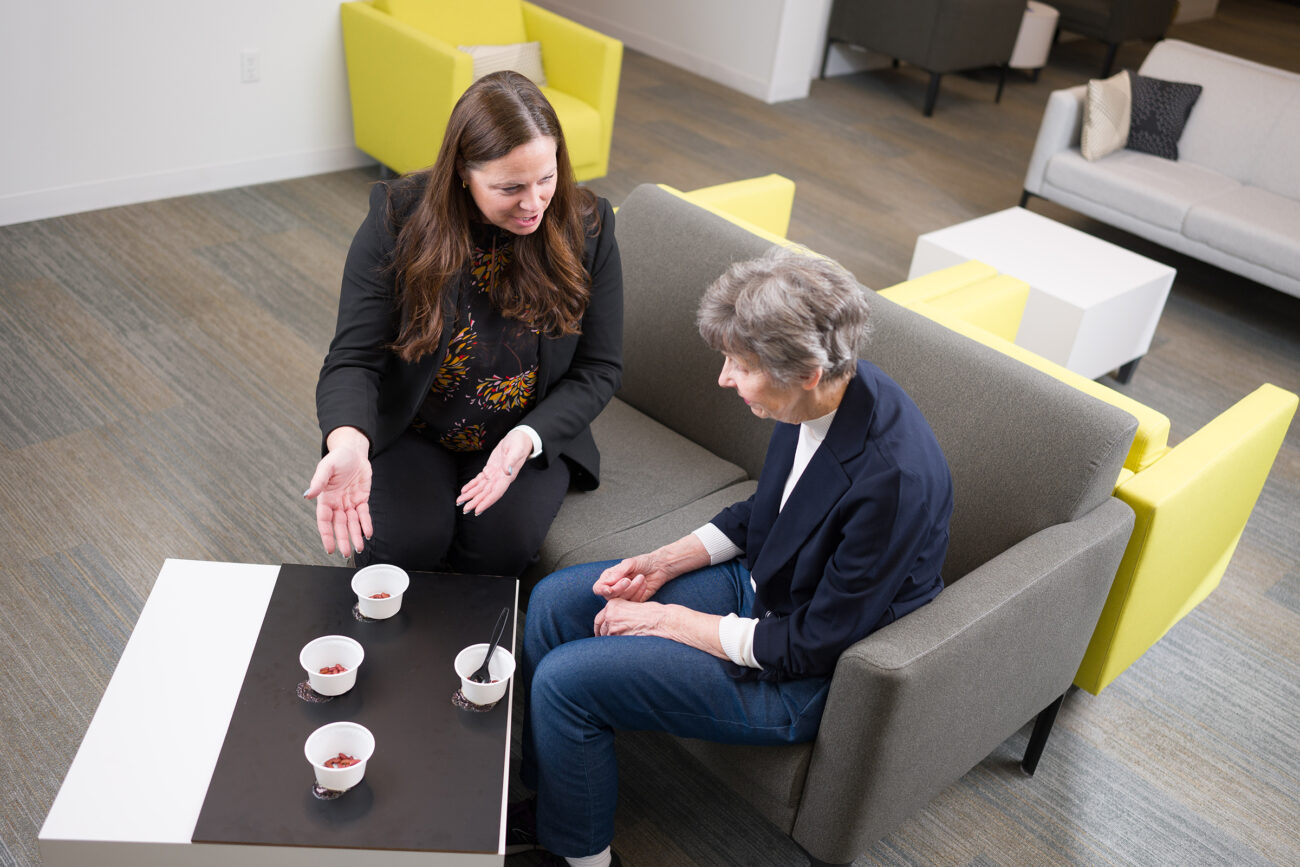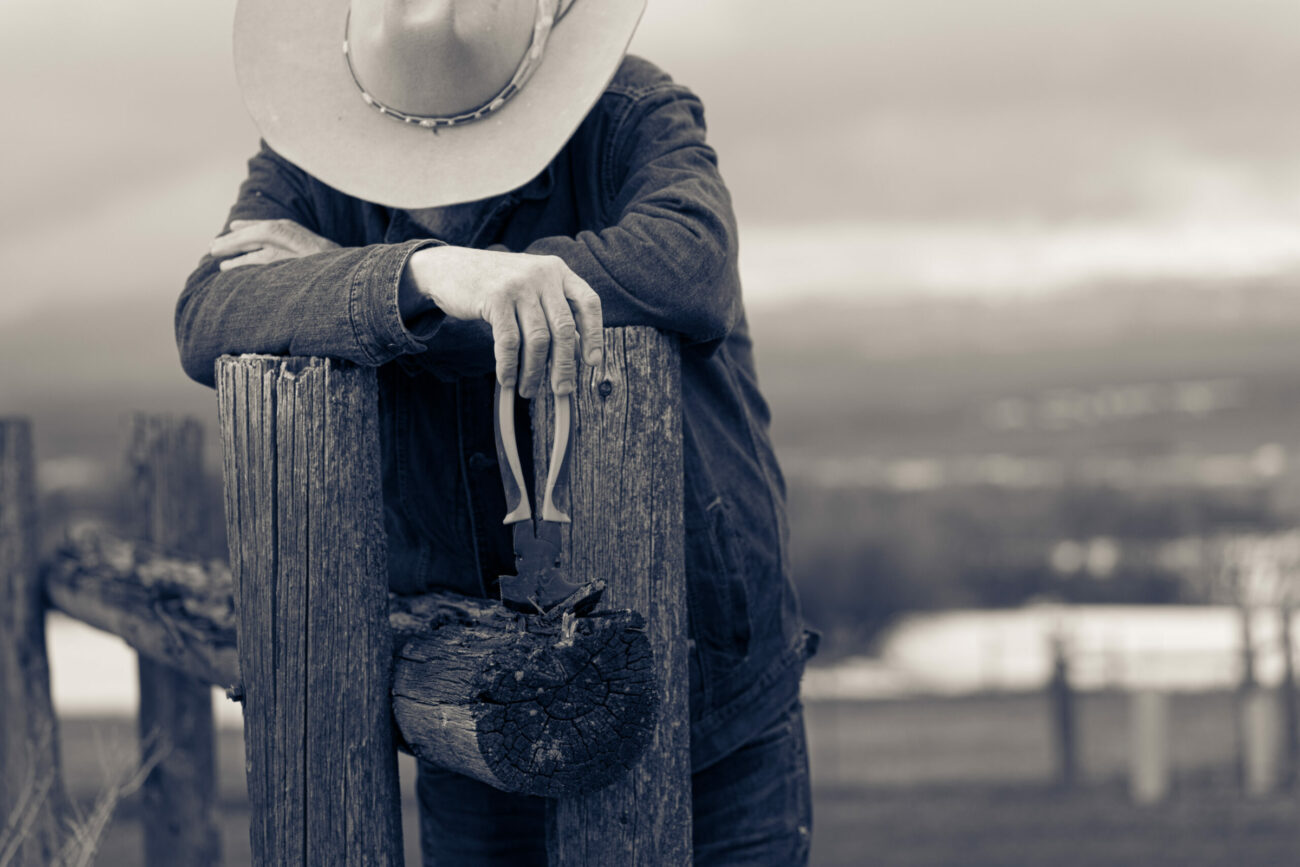My Hybrid Campus: A Firsthand Account About How a Worldwide Pandemic Shaped my College Experience
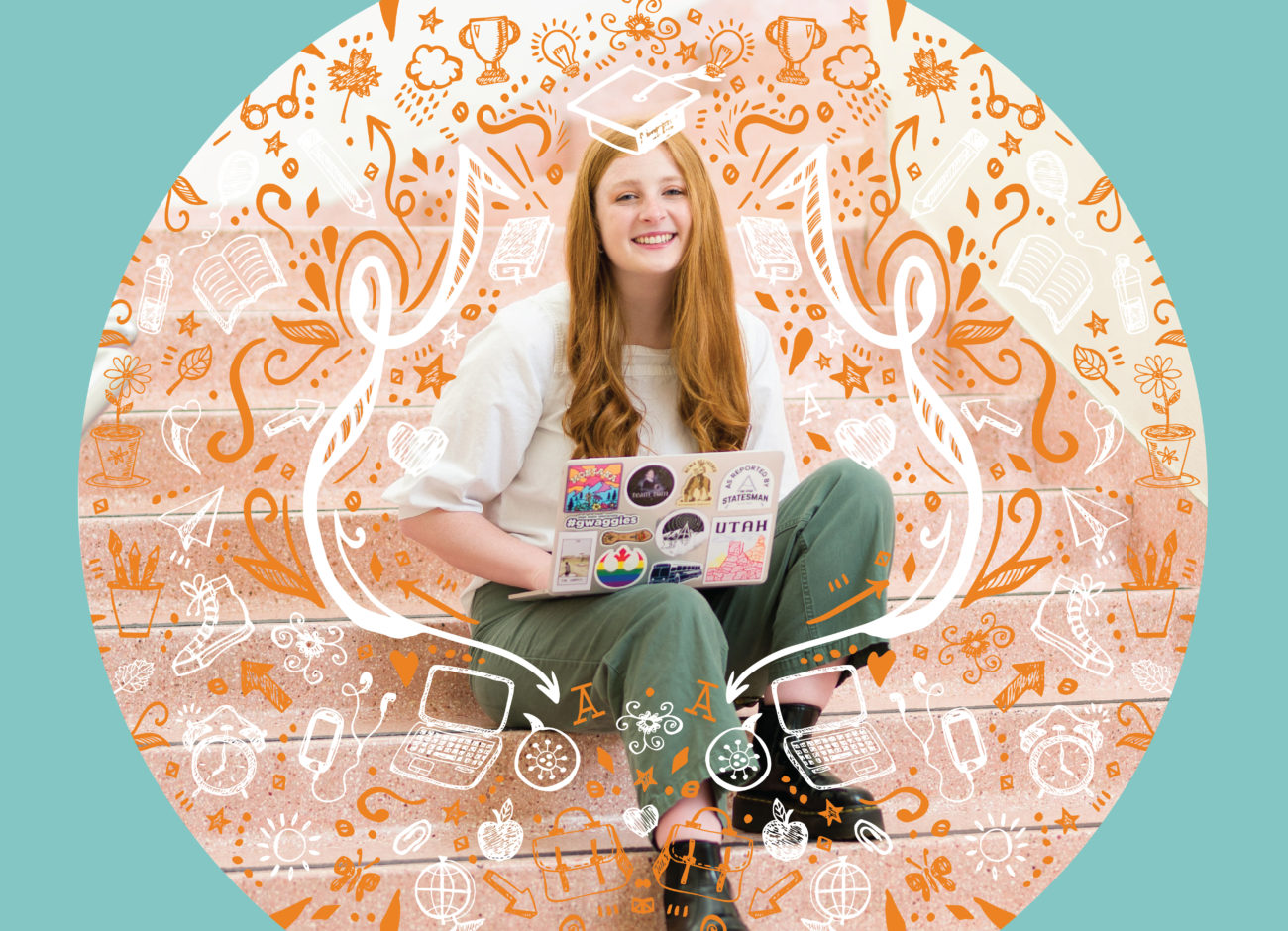
By Darcy Ritchie
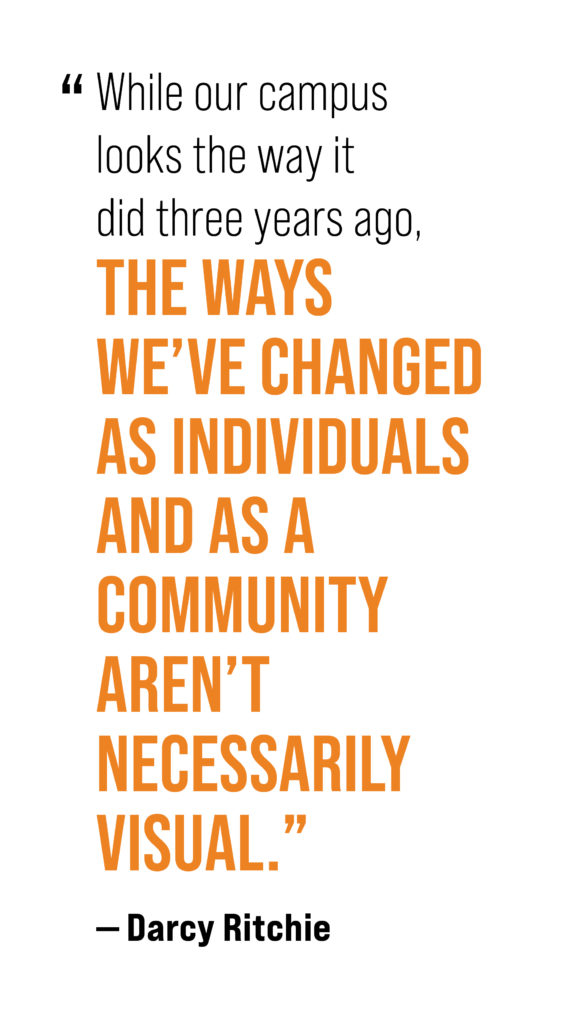
During my second semester at USU, I sat in the second row of my Media Smarts class. We usually spent the first few minutes of class discussing that day’s news, and headlines about a new virus were pretty low in all the email newsletters I had skimmed that morning.
Only a month later, my parents were driving down from Idaho to move me out of my dorm. Classes had been canceled the week prior, and I spent those few days before moving out feeling strange, taking socially-distanced walks through the cemetery, eating takeout from the Marketplace and scouring empty grocery shelves for cereal.
As I waited to move out, I wrote in my journal how overwhelmed I felt by how fast everything changed. “Life feels like a fever dream,” I wrote.
I moved back in with my parents for the rest of the semester and the summer of 2020. It was nice to be back with my friends and family, but everything was colored by feelings of uncertainty. Is it safe for me to get a job? Are my grandparents going to be OK? Will I get to go back to school in the fall?
Though I wasn’t sure it would happen, USU was back in business — in person — that fall. I was excited to get back to school, but I was sad my college experience would be so different from how I imagined it. I considered taking a year off to wait for a more “normal” semester to return to school.
But I’m glad I didn’t wait. I moved back to Logan and spent the semester taking classes over Zoom and sitting six feet away from my coworkers at all times. Despite all the changes, it was so valuable to be on campus to meet new people and learn new things — even from a distance. I continued to participate in my extracurricular activities as well, hosting a weekly show on Aggie Radio and reporting on COVID-19 news for The Utah Statesman.
Three years later, in my final semester at USU, things look very similar to my first year. Almost all visual indicators of the pandemic are gone. Hardly anyone wears masks, social distancing stickers have been removed from desks and student events are back in full force.
While our campus looks the way it did three years ago, the ways we’ve changed as individuals, and as a community, aren’t necessarily visual. Millions of people lost loved ones, and some continue to deal with long-term effects of the virus. Societies have shifted politically, socially, economically, culturally, you name it.
Some of the ways the pandemic affected me personally are easy to recognize. Spending every night watching “America Says” with my parents and reuniting with friends from high school helped alleviate my freshman homesickness. I gave being nocturnal a go and was consequently given a bedtime by my mother as an 18-year-old. I started having panic attacks during the lockdown, which I continue to deal with today.
Looking back over the last three years, I can also recognize the less obvious effects of the pandemic on my life. What stands out are three distinctive ways I changed as I navigated the pandemic as a college student.
First, the pandemic taught me how to adapt to new situations. I was offered a leadership position at Aggie Radio during the lockdown, and I learned how to build a community with my committee of DJs that could only meet virtually. I learned how to make the radio studio a safe, clean space for people to express themselves during a time of social distancing. I learned statistics over Zoom, and if I can do that, I can probably do anything.
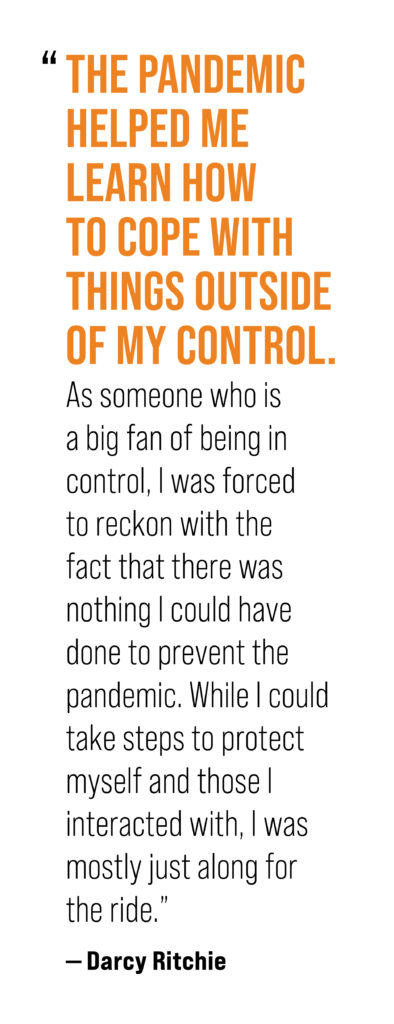
Another effect of my period of isolation is that I learned a lot about myself. I learned that I cannot play Animal Crossing because even being in fictional debt stressed me out too much. I learned that I do not look good with bangs. Most importantly, I learned how to be comfortable being myself. As a freshman, I felt an instinctual need to make myself as likable and outgoing as possible in order to make friends. After moving back home, I spent a lot of time by myself, and I realized I felt far more comfortable when I stopped trying to be someone I wasn’t, and I liked myself a lot better that way, too.
Most of all, the pandemic helped me learn how to cope with things outside of my control. As someone who is a big fan of being in control, I was forced to reckon with the fact that there was nothing I could have done to prevent the pandemic. While I could take steps to protect myself and those I interacted with, I was mostly just along for the ride. This was a difficult adjustment to make, but years later, it’s now easier for me to accept when a situation is out of my hands.
I understand my experience during the pandemic was not everyone else’s. I know I wasn’t affected as drastically as others were. Still, the pandemic affected me in meaningful and lasting ways.
Because everyone experienced the pandemic differently, it’s difficult to reflect on the last few years in a way others will recognize or appreciate. Mostly, it’s just hard to put into words what the pandemic felt like. You really had to be there, but if you’re reading this, that means you were. (Unless you’re reading this decades in the future, in which case I hope you’re enjoying whatever major historical event you’re living through.)
When I started college, the last thing I expected was to live through a pandemic. Now that I’ve finished, it’s interesting to imagine how life might look different if everything had gone the way I planned. Obviously, it didn’t, but I learned how to adapt to the uncertainty, a lesson that will follow me throughout my life.



